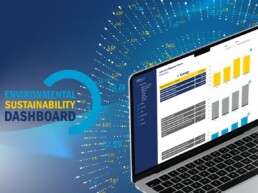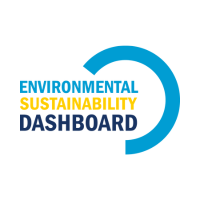Floorball World Championship Qualifications (WFCQ)

Introduction: In recent years, the global discussion on sustainability has grown in intensity, prompting organizations worldwide to assess their environmental footprint. At the forefront of this movement, our team conducted a comprehensive analysis of the environmental impact of the Men’s Floorball World Championship Qualifiers (WFCQ). Using the Environmental Sustainability Dashboard (ESD) developed by Interzero, we set out to assess and minimize the carbon footprint of this major sporting event. Context: The WFCQ took place from January 31 to February 4, 2024 in Škofja Loka, Slovenia. Five teams from Slovenia, Belgium, Switzerland, Italy and Denmark participated, as well as representatives of the International Floorball Federation (IFF). A total of 216 athletes and staff, as well as 2,453 visitors, 33 volunteers and local workers were involved.
Challenge: The venue's carbon footprint
The challenge was clear: how could we ensure that the Men’s WFCQ, despite its exciting sporting nature, also met our sustainability requirements? With various dimensions to consider, including venue operations, transport logistics, communication activities, exhibition preparations, accommodation and catering services, the task was daunting. With a dedicated team and our Environmental Sustainability Dashboard, we took on the challenge.

The following categories were taken into account to calculate the greenhouse gas (GHG) emissions of the venue at the Poden Arena in Škofja Loka (Slovenia):
- Stationary fuel combustion
- total power consumption
- consumption of district heating/cooling
- water consumption
- waste disposal
Solution: Our methodology was based on the principles of Life Cycle Assessment (LCA) to ensure that every aspect of the event was assessed for its environmental impact. From quantifying greenhouse gas emissions to assessing waste and transportation, nothing was overlooked. By using the Environmental Sustainability Dashboard, we were able to collect and analyze data from various sources, adhering to internationally recognized standards such as the Global Reporting Initiative (GRI).
Result: The results of our analysis were both insightful and actionable. With a total carbon footprint of 108.1 tons CO2 equivalent, we gained valuable insight into the areas where our efforts could make the biggest difference. Transportation was the most significant factor, accounting for 52% of the event’s carbon footprint, mainly due to air travel. Accommodation and food also contributed significantly to overall emissions. These findings did not stop the assessment. Instead, we proposed targeted strategies to reduce environmental impact. From promoting sustainable travel options for participants to optimizing the venue’s energy consumption and minimizing waste generation, every mitigation measure was guided by our commitment to sustainability. By the end of the Men’s WFCQ, we had not only achieved our goal of quantifying the event’s environmental impact, but also demonstrated our unwavering commitment to sustainability. Through collaborative efforts and innovative solutions, we transformed a sporting event into a model of environmental responsibility and set new standards for future championships around the world. Conclusion: The success of our sustainability initiative for the Men’s Floorball World Championship Qualifiers (WFCQ) is a testament to the effectiveness of data-driven decision-making and collective action. Looking ahead, we remain true to our commitment to sustainability and ensure that future generations can enjoy the thrill of sport without compromising the health of our planet.
What is the Environmental Sustainability Dashboard?
The Environmental Sustainability Dashboard (ESD) is Interzero’s solution that supports its clients in integrating sustainability into their business strategy through key consulting services. The ESD includes several steps, starting with context analysis and ending with the creation of a sustainability action plan. A key element is the ESD tool, an online platform that helps companies calculate various environmental, social and governance impacts of their core activities and/or products. The impacts are assessed in different dimensions such as emissions, energy, materials, water and waste. A wide range of Key Performance Indicators (KPIs) can be calculated, such as GHG emissions or material consumption. For each dimension, specific data is required to calculate the relevant results. Both input and output data are selected and generated based on common standards, such as the Global Reporting Initiative, and referenced literature. The result information can be used not only for communication purposes but also for technical assessments and integrated into the corporate sustainability report. The ESD is available to companies of all sizes, regardless of whether they offer services or products.

Pragmatic implementation of the CSRD:
Guide and webinar support you with sustainability reporting

Interzero delays Earth Overshoot Day:
Sustainable circular solutions show their impact


